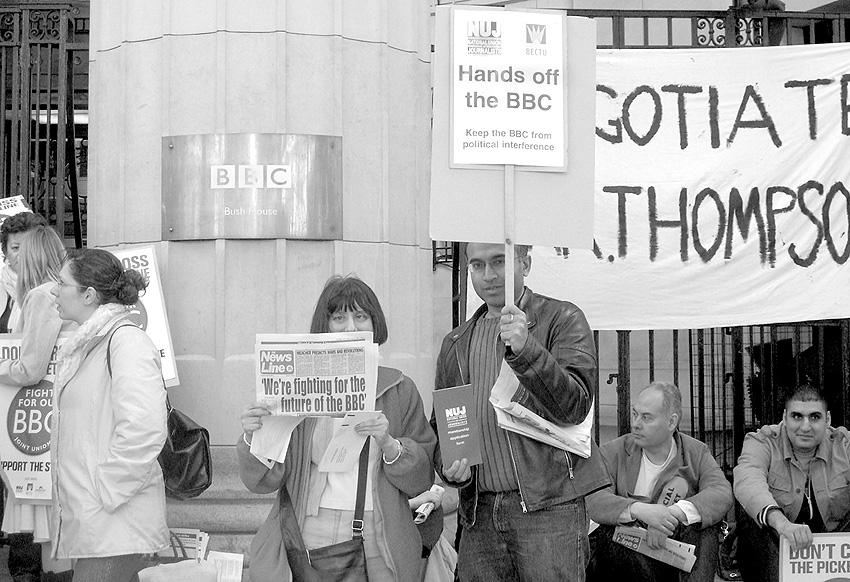FOUR hundred and fifty jobs are to be axed at the BBC, it was announced yesterday.
The cuts include the closure of the Victoria Derbyshire show, with some roles retained to continue similar digital content under the BBC News brand.
Newsnight will lose 12 posts, halve production of its four weekly in-depth films and reduce spend on investigative journalism. Twelve posts will go at 5Live. There will be more sharing of radio bulletins across the BBC, with a loss of 12 posts. Five news presenter posts will be cut.
Paul Siegert, NUJ national broadcasting organiser, said: ‘Today’s announcement is just the latest in a decade of cuts made by the BBC. The proposal for as many as 500 posts to go in the next 12 months will put those remaining at the BBC under even more strain, with increased workloads and further workplace stress is inevitable.
‘… The NUJ remains opposed to any compulsory redundancies and urges the BBC to work with the unions in ensuring the staff who are at risk can be redeployed. The BBC’s redeployment policy and processes must be taken seriously and there must be an immediate freeze on external recruitment.’
Michelle Stanistreet, NUJ general secretary, said: ‘These damaging cuts are part of an existential threat to the BBC, and a direct consequence of the last disastrous, secret licence fee deal the BBC agreed with the government. This is before the impact of taking over responsibility for the over-75s licences kicks in.’
Bectu union agreed, stating that: ‘Government policy including decisions around free licences for over 75s, rather than poor management, have led to the BBC cuts.’
Bectu national secretary Noel McClean said: ‘Bectu will be doing everything it can to minimise the impact of today’s announcement.
‘We have already met with the BBC to start consultation about their proposals and timescales about how staff can be deployed to other areas rather than losing their jobs.
‘The unprecedented constraints faced by the BBC will leave our members under even more pressure to deliver the output and service that has made this essential public service the envy of the international broadcasting community and risks its future viability.’
